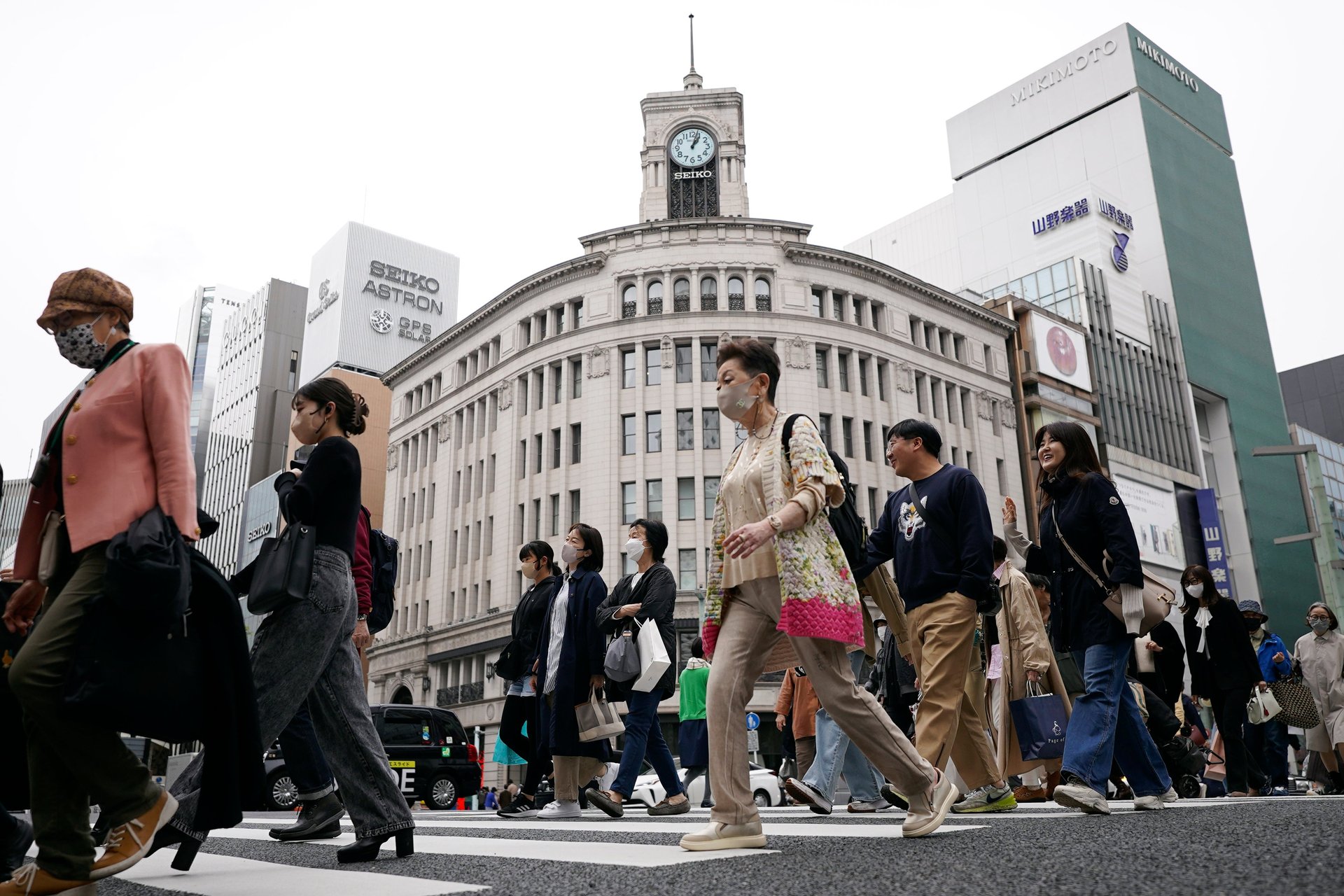Japan's economy sinks into contraction as spending, investment decline
Japan has reported that its economy contracted at a 2.1% annual pace in July-September as consumption and investment weakened

TOKYO (AP) — Japan's economy contracted at a 2.1% annual pace in July-September as consumption and investment weakened, the government said Wednesday.
Suggested Reading
Weak wage growth in the world’s third-largest economy also sapped its vitality, the Cabinet Office said. In quarterly terms, the economy contracted by 0.5%.
Related Content
The numbers were unexpectedly weak. Private consumption shrank an annualized 0.2%. Corporate investment decreased 2.5%. With investment and demand weakening in other major economies, “we expect GDP growth to slow from 1.7% this year to 0.5% in 2024,” said Marcel Thieliant of Capital Economics.
The economy grew at a revised annual pace of 4.5% in April-June and 3.7% in the January-March, the latest figures showed. The earlier estimate for the April-June quarter was of a 6% annual expansion.
The last quarter's performance was far worse than what had been expected, according to the financial services company ING, which had forecast an annual contraction of 0.5%.
“Most of the miss in the consensus forecast came from weaker-than-expected domestic demand items, such as consumer spending, business investment and inventory accumulation,” Robert Carnell, ING's head of research for the Asia-Pacific area, said in a report.
Prime Minister Fumio Kishida recently announced a stimulus package of more than 17 trillion yen ($113 billion) that includes tax breaks and benefits for low-income households that have struggled as prices for many necessities have surged due to global inflation and the weak yen.
Economic activity in previous quarters was helped by recoveries in inbound tourism and exports. Social restrictions related to the COVID-19 pandemic have been lifted, allowing for more travel and fewer disruptions to trade and supply chains.
Exports managed to eke out 0.5% growth in the latest quarter, in contrast to a 3.2% rise in the second quarter. Auto exports recovered after stalling partly due to shortages of computer chips and other parts.
Public demand, which includes government spending, rose at an annual pace of 0.6% in the latest quarter.
Given the numbers, Japan’s central bank isn't likely to consider any move toward higher interest rates.
The Bank of Japan has taken a super-easy monetary policy for years, with zero or below-zero interest rates aimed at energizing an economy long beset by deflation, which reflects the stagnation that has plagued Japan with its aging and shrinking population.
___
Yuri Kageyama is on X, formerly Twitter: https://twitter.com/yurikageyama